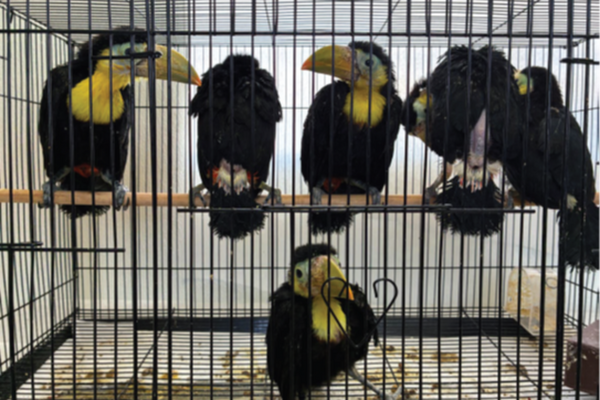
I used to think that The Seagull was the great play about writing, with its vision of the established and the aspirant dramatist, its insights into authorial jealousy, its portraits of women enraptured by pen-wielding men. Chekhov’s drama glints slightly differently in Jamie Lloyd’s startling production, which uses Anya Reiss’s lively modern version. It rivets with what it shows about celebrity; the longing for it and its insidious effects.
Lloyd never does anything by halves. In one of the most revelatory productions of the past decade he, and translator Martin Crimp, turned Cyrano de Bergerac from a big-nose-and-boots-boys flamboyant indulgence into something immediate and rasping. Now he does the opposite with The Seagull. He stills a work that often flaps around, strutting its thespiness.
The conventional wisdom about Chekhov is that the British have always performed him too solemnly; that in the best Russian productions, the plays are funny and fast. Lloyd’s staging is vehemently static. Which is not to say unmoving. Nodding to the subject matter of the play, which opens with a coolly received avant-garde drama (The Seagull itself was booed at its St Petersburg premiere in 1896) and centres on two playwrights and two actors, the action takes place as if in a rehearsal room. Soutra Gilmour’s design is a provisional, cheap chipboard box, partly removed for the second half to show complete darkness behind everything. The cast sit – some slumped, some rigid – as if under a spell. They hardly ever get up, only occasionally shifting on to another row of chairs when not taking part in the main action. Speeches ripple down the line conversationally, but charged with intensity.
One of the reliefs of this motionless staging is that Emilia Clarke as Nina does not have to blunder around in the final act like a wounded bird. The only actor I’ve seen easily carry that off is Carey Mulligan. Clarke brings engagement and strong vocal attack to a character who can easily seem limp, but limits her facial expressions: early on she is marvellously ecstatic; in her breakdown moments her eyebrows undulate alarmingly. The transfixing performance is by Indira Varma, who plays the star actress Arkadina with a sublime composure. There is nothing showy about her performing being a performer, nor is she ever mechanical, yet she makes it plain that her utter proficiency has come at the cost of passion.
Stephen Beresford, author of 2012’s The Last of the Haussmans, has said that he likes to write about attitudes that are on the wane, not in vogue. The Southbury Child comes on as an old-fashioned, well-made play, centres on a well-worn institution, the Church of England, and surprises.
In a town – inspired by Beresford’s home of Dartmouth – divided by extremes of wealth, a child has died. Her mother wants her funeral in the local church to be decorated with pink Disney balloons; the vicar refuses – “not appropriate”.

He insists this is not a matter of “taste” (though is taste merely skin deep?): the celebratory trimmings are an evasion. He looks less than compassionate, and the play at first seems an exercise in exposing (as if it were ever hidden) the rigidity of Anglicanism and English chilliness. Oh and hypocrisy: the vicar is a drunk and unfaithful to his wife.
Yet a most delicately calibrated performance by Alex Jennings – bemused by his own delinquency, sweet in manner and obdurate in mind – reveals the vicar’s stance is a true one, despite the complacent tinge to his claim that he is giving his congregation what they need, not what they want. Integrity is credible because – imagine this in a leader – it has nothing to do with courting popularity.
The point twists: to what extent can an institution be adapted without ceasing to be itself? It might have been given a further twist: is head-on candour the only true confrontation with sorrow? In Nicholas Hytner’s absorbing production, Josh Finan is striking as a forlorn lout. Who could be better than Phoebe Nicholls as the tight-lipped, wronged wife who, when her husband is stricken with silence during the funeral service, finds words to help him, and at a moment of anguish stretches out a sheltering arm to a mother.
At the RSC, outside Richard III, a notice warns there will be “scenes of death, violence and threat” – as well as latex balloons! Does anyone going to Stratford, even for the first time, expect a tap-dancing romp?
The company, which hopes to announce a new artistic director in September, will need to think what the theatre’s particular purpose is now that so much Shakespeare is available. Another popular theatre, the Globe, is dedicated to his work, and this week the Shakespeare North Playhouse, modelled on a local Elizabethan theatre, will open in Prescot. Gregory Doran, the RSC’s former head, makes one welcome innovation in this production, which concludes his staging of the History Cycles. Arthur Hughes, who was born with radial dysplasia and describes himself as “limb different”, is the first disabled actor to play Rich III at the RSC.
Hughes’s Richard is not a malignant spider but a confident calculator. He has a dead-eyed placidity, is at ease with his own machinations. This makes his astonishing ascent plausible – he slithers into pole position – but it comes at the cost of dynamism. He does not crack the stage open.

The accomplished production is a compendium of the theatre’s resources, but also an indication of its shortfall. Stephen Brimson Lewis’s design is monumental, unambiguous: grey and scarlet with a cenotaph at the centre. There are fanfares and a soaring boy treble. Jamie Wilkes’s Buckingham has an astute hint of the swivel-eyed spin doctor. The abused, and abusing, women are strong: especially Kirsty Bushell’s sceptical Queen Elizabeth (“The king. Who’s that?”) and Claire Benedict’s sagacious Duchess of York. Costumes – oh the silky stiffness of the gowns, the flare of the coats – are button-perfect.
Yet the evening is formal, lacking in danger. You can almost read the stage directions as characters stream in to take up their speaking positions. England is being split apart, possibly damaged for ever, by a terrible ruler; it seems here merely to be being rearranged.
Star ratings (out of five)
The Seagull ★★★★
The Southbury Child ★★★★
Richard III ★★★
The Seagull is at the Harold Pinter theatre, London, until 10 September
The Southbury Child is at the Bridge theatre, London, until 27 August
Richard III is at the Royal Shakespeare theatre, Stratford-upon-Avon, until 8 October







